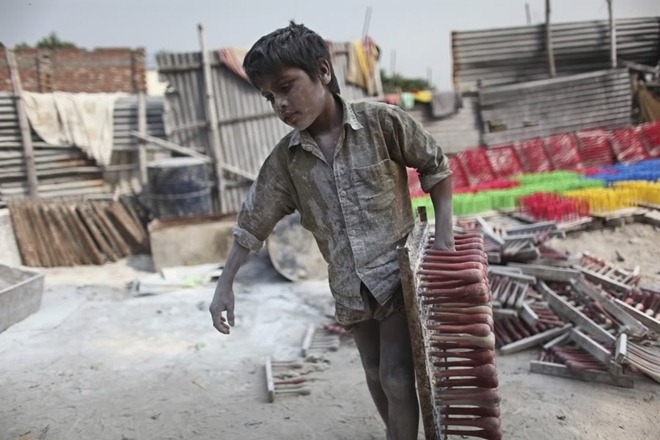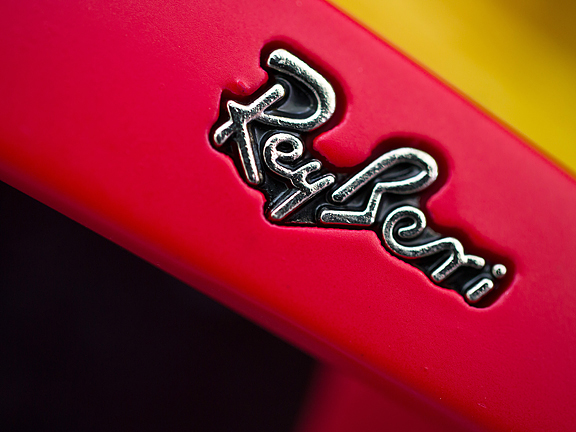The Dark Side of Luxury Goods

“I remember walking into an assembly plant in Thailand a couple of years ago and seeing six or seven little children, all under ten years old, sitting on the floor assembling counterfeit leather handbags," writes fashion journalist Dana Thomas in her book Deluxe: How Luxury Lost Its Luster, which describes the dark side of luxury fashion and the atrocious abuse of children in sweatshops in Asia. "The owners had broken the children’s legs and tied the lower leg to the thigh so the bones wouldn’t mend. They did it because the children said they wanted to go outside and play.”
Counterfeit products cost the global economy an estimated $461 billion a year in 2013. Which is the same value as the illegal drug trade that represents 2.5 percent of global imports, according to the Organisation for Economic Co-operation and Development (OECD). In 2014, 92 percent of all the products detained at customs were brought from Asia. China represents the first country with more than 74 percent of counterfeited products, followed by Thailand with 6 percent, and India with 4 percent. Lawsuits against counterfeited products are filed daily. For instance, in 2012 Alibaba, the world’s largest e-commerce platform was the first Chinese site to take legal actions against sellers selling counterfeited Swarovski watches. According to the World Customs Organization, the most targeted counterfeited brands include Rolex, Ray-Ban, Louis Vuitton, and Nike.
Image Credit: Flickr/Fstop186
Today, counterfeit products have given the opportunity for anyone, regardless of social class, to be part of a consumer niche desired by many. Two important reasons consumers buy counterfeit products are low costs and the perceived value the brand delivers. The price of a counterfeit product is a fraction of an original product and as a result, many counterfeit products are bought. The product is then given a higher value, as it is an easy way of creating status.
Even though many agree that counterfeit products are fun, cheap and identical to luxury products, they don’t hold the exclusiveness the real product holds. Many customers do not know that counterfeit goods also support illegal labor, especially children, working in an industry that doesn’t give fair wages and promotes poor working conditions. Migrants who get smuggled into a country, are often kidnapped, forced to work in sweatshops and sell counterfeit goods.
Video Credit: TheGuardian/Patrick Kingsley, Ahmed Deeb, Fred McConnell and Ekaterina Ochagavia
With the ongoing refugee crisis, many young Syrians who arrive in Turkey have been driven to work in sweatshops instead of going to school. According to UNICEF, more than half of Turkey’s 2.7 million registered refugees are children, and 80 percent of them are not going to school. As seen in this video, Hamza, a 13-year-old boy works 12 hours a day, six days a week. A third of the workers in the warehouse where Hamza works are children, and are all assembling and molding leather. Hamza says that he would love to go to school because he misses reading and writing, but because ISIS killed his father, no one else can bring him food unless he works long hours. Many individuals have problems getting a work permit, and therefore earn less than the minimum wage, which makes it almost impossible to feed large families.
Responsible and ethical consumers need to understand how to avoid purchasing fake products. Therefore, a consumer needs to remember to look for the “3 P’s”:
Price: If the price looks too good to be true, it probably means it is a fake.
Packaging: If the product is being sold without its packaging and there are printing mistakes, it is probably fake.
Place: Ask yourself if the product is typically sold in a particular environment and make sure to only work with established merchants. While online, one needs to check the fine print in the product descriptions, FAQ and legal pages.
Lastly, if you ever find yourself in front of a counterfeited product, please contact Contratak S.A.S, a French-based consultancy firm dedicated to anti-counterfeiting around the world.
Contratak S.A.S
66 rue la Chaussee d’Antin
75009, Paris
Tel: +33 (0) 1 48 74 58 69
Email: france@react.org or information@contratak.com








